Watt
The steam engine
Steam engine : purpose and means
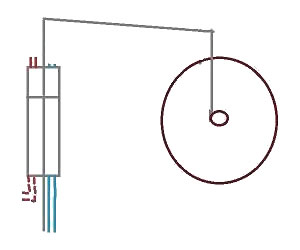
- the means: the piston activated by steam
the purpose:to rotate a wheel which will activate the factory machinery
Steam engine: steps

- the piston
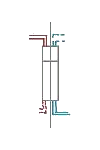
- the piston and its tubes alternately providing steam and sending it to the condenser
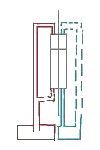
- the piston with boiler and condenser
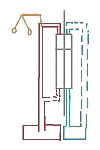
- the apparatus with the governor
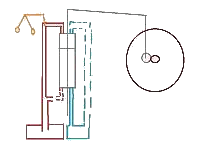
- the apparatus linked to the wheel
The principle: steam expands 1800 times more than water; condensed water produces a vacuum.
Steam engines were:
- first used for pumps,
- then to activate machinery when Watt found the means to transform their motion into rotary motion through his ’sun and planet’ system.
Watt’s improvements:
- in the steam production process:
- condensing the water in a separate condensor so that cold water would not diminish the efficiency of the machine
- the double-effect piston
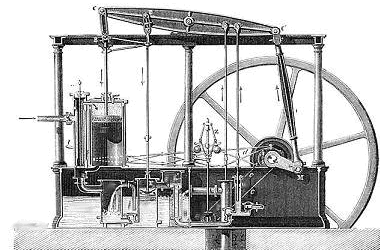
- Steam engine with governor
- [click on the picture to enlarge it]

- Governor
- the ’governor’ (earlier used for corn mills): when the machinery gathers speed, the balls of the governor start flying outwards and upwards (centrifugal force) and activate the lever which closes the valve to diminish the speed; the balls of the governor fall again, opening the valve to increase the speed again when it becomes too low. This is the earlist example of ’feedback’, and a model of a self-regulating system.
’Parallel motion mechanism’ is needed to adjust the vertical motion of the piston into the arc of the movement of the ends of the rod.
Activities:
- study the corresponding section on the Science Museum website.

